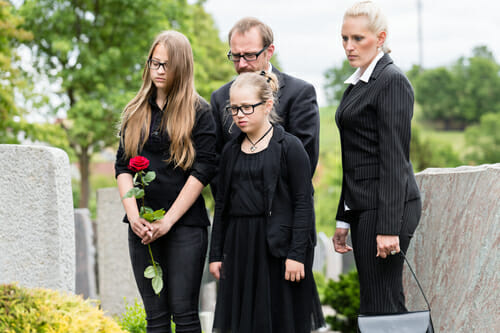 {Read in 7 minutes} At various points during my blogging, I’ve written articles on what happens when you die with a Will, and what are some things that you should consider when writing a Will — particularly one that you do yourself. However, it may come as a surprise that the majority of New Yorkers die without a Will, or as we in the law say, they die intestate.
{Read in 7 minutes} At various points during my blogging, I’ve written articles on what happens when you die with a Will, and what are some things that you should consider when writing a Will — particularly one that you do yourself. However, it may come as a surprise that the majority of New Yorkers die without a Will, or as we in the law say, they die intestate.
This happens for a variety of reasons: There are some people who simply never get around to writing a Will, or there are some people who simply do not want to write a Will because they don’t wish to deal with their own mortality. Finally, there are some people who do write a Will, but the Court denies probate to the Will either during motion practice or after it goes to a jury. So what happens when one dies intestate?
Intestacy in New York
New York State has a law that creates a default distribution pattern that dictates who gets what. What do you think it says? It should come as no shock that the spouse and children are among the first people entitled to inherit — however many people would be surprised to learn that both spouse and children are entitled to inherit. What does the law provide? The law provides that, absent a Will, the surviving spouse gets the first $50,000 of one’s assets, with the balance going to the descendants (children or in some cases grandchildren) who survive the deceased, in equal shares.
For example, if I die with $200,000 in assets, my spouse will wind up with $125,000 of that sum (the first $50,000 plus $75,000 of the remaining $150,000). My children would receive the remaining $75,000 in equal shares.
This is startling to some parents who just presume that their surviving spouse would inherit everything and their children would only inherit if the parents died together. Not the case. Children inherit unless the parents held things jointly or are named beneficiaries on all of their assets in order to avoid them having to pass through their Estates.
Keep in mind that not everyone who dies intestate leaves a spouse or descendant(s). If there is no spouse, assets could potentially go to more remote relatives starting with parents, then siblings, then nieces and nephews, then grandparents, then aunts and uncles, then first cousins, and then your first cousins once removed (the children of your first cousins).
People have many misconceptions about what happens when someone dies intestate. One of the most common things that I hear is, “If I don’t leave a Will, the state is going to take all of my money.” That’s not the case, as indicated above, our intestacy statute in New York provides for who gets what in the event of a person’s death. The legislature’s intent was to pick a generic distribution pattern that would fit the wishes of the majority of New Yorkers. If you don’t like this generic distribution pattern, you need to write a Will to override it. If you like this generic distribution pattern, fantastic. If your Will would simply leave money to the same people who would get it under the laws of intestacy, you may not even need to write a Will.
Administrator
Now that we know who is going to inherit, we need to know who’s going to be in charge of administering the Estate. Unlike a Will, where a client can name an Executor of their choice, when one dies intestate the Court places an Administrator in charge of the Estate. The person eligible to become the Administrator is decided solely by statute, with the first choice being the surviving spouse and, if there is no surviving spouse, then in order of preference:
– Adult children
– Parents
– Siblings
– More remote next-of-kin who have a pecuniary interest in the Estate.
Anyone on this list can only become the Administrator if they are eligible to serve, which means they are at least 18 years of age, they are competent, they have never been convicted of a felony, and they are at least a permanent resident of the United States (if not a U.S. citizen).
If there is no one eligible or willing to serve, or if there are several people with the same rights to serve arguing over who should serve (for example, adult children who cannot agree which one of them should serve as Administrator), then the Court may choose to appoint a government official known as the Public Administrator to serve as the Administrator of the Estate.
Once we have an Administrator appointed, what does the Administrator do? Pretty much the same things as what the Executor does: collecting assets; paying bills, expenses, and taxes; and distributing the money to the people who are entitled to it.
However, if you wish to deviate from this pattern, you must write a Will to accomplish it. People should note that Administrators and Executors are treated nearly identically under the law. There is no real advantage to having one as opposed to the other if the laws of intestacy are the best fit for the client.
Whether it’s going to be an Executor or Administrator, families should discuss amongst themselves who would be the best candidate as soon as they receive a copy of the death certificate. If there’s uniform agreement, the family can submit a single petition to the Surrogate’s Court, to seek appointments and proceed with the administration of the Estate.
Therefore, it’s very important that when someone dies intestate the family members don’t panic. Everything will be fine… most of the time. For more information on this topic, please contact me at (212) 495-0317 or by clicking here.

